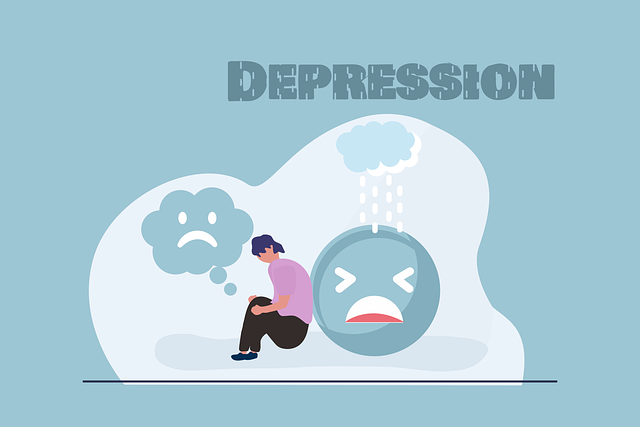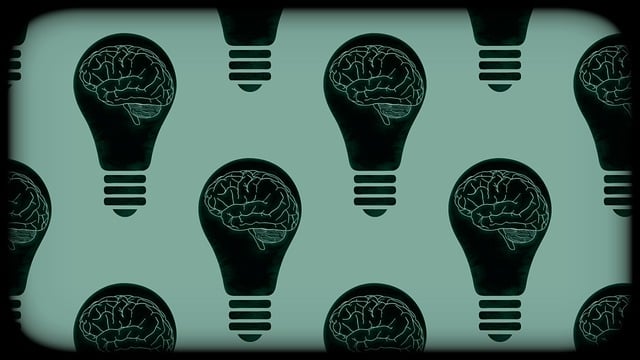Castle Rock Cognitive Processing Therapy (CRCPT) is a evidence-based approach combining the Risk, Factors, and Resilience Model (RFM) with structured processes to build emotional resilience. By identifying and modifying unhelpful thinking patterns, CRCPT equips individuals and healthcare professionals to manage stress, prevent burnout, and improve decision-making. Through self-awareness exercises and reframing techniques, it promotes positive mindsets, enhances coping strategies, and fosters mental wellness, making it a valuable tool in both clinical settings and community outreach programs.
“Unraveling the power of resilience through RFM (Risk, Frequency, and Severity Management), this article explores an effective framework for navigating life’s challenges. We delve into the transformative potential of Castle Rock Cognitive Processing Therapy, a unique approach to building mental fortitude. By understanding negative thought patterns and implementing practical exercises, individuals can enhance their ability to cope with stress. Discover strategies to integrate RFM into daily routines, fostering long-lasting resilience and promoting overall well-being through evidence-based Castle Rock Cognitive Processing Therapy techniques.”
- Understanding RFM and its Role in Resilience Building
- The Castle Rock Cognitive Processing Therapy Approach
- Identifying and Challenging Negative Thought Patterns
- Practical Exercises for Enhancing Mental Resilience
- Integrating RFM into Daily Life: Strategies for Long-Lasting Change
Understanding RFM and its Role in Resilience Building

Resilience is a key component of emotional well-being promotion techniques, and Castle Rock Cognitive Processing Therapy (CRCPT) offers a unique approach to building this vital skill. RFM, or Risk, Factors, and Resilience Model, forms the backbone of CRCPT’s methodology. This model recognizes that individuals cope with challenges differently based on their personal factors and the nature of the stressor. By understanding these components, therapy sessions are designed to help clients navigate and overcome adversity.
CRCPT focuses on identifying and modifying unhelpful thinking patterns and behaviors, thereby enhancing a person’s ability to manage stress. The therapy involves a structured process where individuals learn to recognize their emotional responses and cognitive distortions during stressful situations. Through this awareness, they can develop effective coping strategies and build mental resilience. Stress Management Workshops Organization often incorporates CRCPT techniques into their programs, recognizing its potential in fostering mental health education and designing comprehensive interventions for better emotional well-being.
The Castle Rock Cognitive Processing Therapy Approach

The Castle Rock Cognitive Processing Therapy (CRCPT) Approach is a unique and effective method designed to enhance resilience and coping mechanisms. This therapy focuses on helping individuals navigate through challenging situations, particularly those in high-stress environments like healthcare. By utilizing CRCPT, healthcare providers can develop crucial coping skills and increase their emotional resilience.
This approach encourages self-awareness exercises, enabling professionals to understand their thoughts and feelings during stressful events. Through structured techniques, it aids in reframing negative perspectives, thereby preventing burnout. The Castle Rock method has proven beneficial for healthcare workers, offering practical tools to manage pressure, improve decision-making, and maintain a positive mindset—all essential aspects of burnout prevention strategies.
Identifying and Challenging Negative Thought Patterns

Identifying negative thought patterns is a cornerstone of Castle Rock Cognitive Processing Therapy (CRCPT), a therapeutic approach designed to strengthen mental resilience. These patterns, often rooted in past experiences, can distort our perception and contribute to feelings of anxiety or depression. Through CRCPT, individuals learn to recognize these unhelpful thoughts and challenge their validity. By questioning the evidence supporting negative beliefs, patients gain a more realistic perspective, fostering improved mental wellness.
The process involves active engagement with one’s thoughts, a skill often cultivated through Mental Wellness Coaching Programs. This development enables individuals to become more aware of their cognitive processes. Community Outreach Program Implementation can also play a role in spreading awareness about the importance of addressing negative thought patterns and promoting accessible resources for risk management planning among mental health professionals.
Practical Exercises for Enhancing Mental Resilience

Building mental resilience is a key aspect of navigating life’s challenges and stresses. Practical exercises like Castle Rock Cognitive Processing Therapy (CCPT) offer effective tools to enhance one’s ability to cope with adversity. This form of therapy helps individuals identify and challenge negative thought patterns, fostering a more positive and adaptive mindset. By focusing on re-structuring cognitions, CCPT enables people to develop healthier perspectives, thereby increasing their resilience in the face of life’s ups and downs.
Additionally, compassion cultivation practices and communication strategies play a significant role in resilience building. These practices encourage self-awareness and empathy, allowing individuals to connect more deeply with themselves and others. Implementing a community outreach program can further strengthen this process, as it fosters social connections and a sense of belonging—crucial elements in the tapestry of mental well-being. Together, these strategies empower folks to embrace challenges with resilience, much like a sturdy castle endures the storm.
Integrating RFM into Daily Life: Strategies for Long-Lasting Change

Integrating RFM (Risk, Frequency, and Severity of Negative Experiences) into daily life is a key strategy for long-lasting change in mental health and building resilience, as supported by Castle Rock Cognitive Processing Therapy. By regularly assessing and understanding the impact of negative experiences, individuals can develop effective coping mechanisms and enhance their ability to navigate challenging situations. This process involves identifying high-risk areas where negative events frequently occur and evaluating their severity.
For instance, professionals in trauma support services can guide clients to track daily stressors, considering both frequency and intensity. This awareness allows for proactive risk management planning, enabling individuals to build inner strength development strategies tailored to their unique experiences. Over time, this approach equips people with the tools to manage their mental health effectively, fostering resilience that extends beyond temporary coping mechanisms.
The integration of RFM (Resilience-Focused Mindfulness) and Castle Rock Cognitive Processing Therapy offers a powerful approach to building mental resilience. By identifying and challenging negative thought patterns, individuals can transform their mindset and cultivate a more positive, adaptive perspective. Practical exercises within these therapeutic frameworks enable folks to enhance their emotional well-being and navigate life’s challenges with greater ease. Adopting strategies from RFM into daily routines fosters long-lasting change, ensuring individuals are equipped to embrace life’s ups and downs with resilience and grace.














